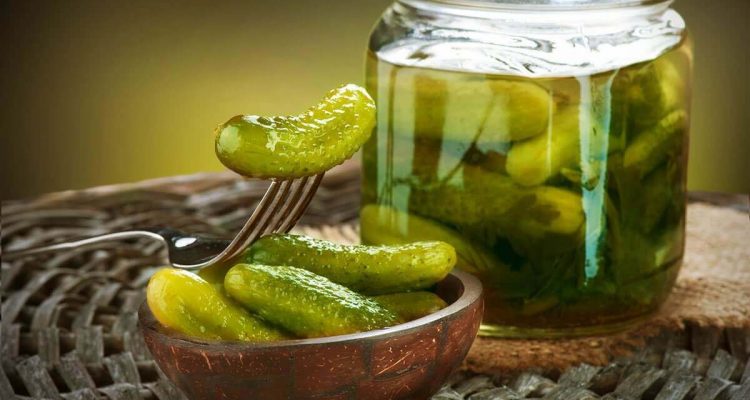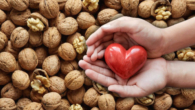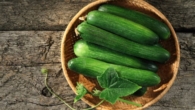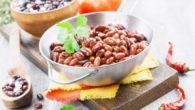
Are pickled cucumbers a healthy food? What nutritionists say
1
Pickles are a very popular product that can be eaten alone or added to other dishes, even desserts, if you like adventures in cooking. But is this snack useful?
Pickles are perfect when you want something salty and crunchy, just don't forget about these moments.
I love pickles. Salty, slightly sour taste, crispy structure – all this is pleasant in its own way, and you can enjoy such cucumbers both separately and as part of other dishes. But my clients, who also love pickles, often ask me how healthy they are. Yes, they can be useful, but there are several factors to consider when purchasing. Here is the whole truth about pickles from a nutritionist's point of view.
Nutritional value of pickles
Pickled cucumbers are still cucumbers, so the nutritional value largely depends on them. A quarter of pickles contains only five calories and almost no vitamins. The exception is Vitamin K, which supports bone health and promotes proper blood clotting. One quarter contains about 7% of the daily norm of this element.
A whole pickled cucumber is more nutritious. It contains vitamin A, which is good for the immune system, as well as a small amount of the daily allowance of calcium, potassium and vitamin C.
Pickles and sodium
Remember , that pickled cucumbers are usually high in sodium. Indeed, one quarter contains about 300 milligrams of this element, which is approximately equal to 13% of the recommended daily allowance for adults.
And that means you need to carefully check your recommended serving size to estimate your total sodium intake. For example, if the label says that one ounce, which is about half a cucumber, contains 270 milligrams of sodium, and you ate a whole cucumber, you consumed 540 milligrams of sodium, about a quarter of the recommended daily value.
Potential effect of probiotics
There are two ways to prepare pickled cucumbers. The standard is to preserve vegetables together with salt, an acid such as vinegar, and other ingredients such as sugar or spices. But pickled cucumbers can also be obtained by fermentation. In this case, natural bacteria develop over several weeks and secrete lactic acid, which gives the final product its characteristic acidity. Among these bacteria is Lactobacillus, a beneficial probiotic that improves immunity and digestion and promotes the assimilation of nutrients. Note: Most store-bought pickles aren't fermented, so if you're looking for that effect, look for the special label “probiotic” or “fermented product.”
And even if you're not interested in the benefits of probiotics, take a look at the ingredients before you put that jar in your cart. Some manufacturers use completely natural ingredients, that is, a simple combination of cucumbers, water, vinegar and spices. But others may resort to supplements that you personally may not like. These include, for example, artificial dyes and preservatives.
Brine and muscle cramps
An older study of just nine people, published in the Journal of Athletic Training, found that small doses of saline did not increase the concentration of electrolytes in the blood. The authors of the paper are also not sure that the brine can relieve muscle cramps after training, because it is not able to replace all the sodium lost in sweat. In addition, the acetic acid in vinegar delays gastric emptying, which slows the absorption of nutrients.
Meanwhile, another study found that brine actually prevented seizures induced by electrical stimulation in dehydrated people. However, according to scientists, this effect cannot be explained by the ability of brine to fill the volume of liquid or electrolytes. According to them, the acetic acid contained in it can prompt the brain to “tell” the muscle to stop contracting and relax.
How to include more pickled cucumbers in the diet
Pickles are much more versatile than you think. In addition to serving as an ingredient for burgers or sandwiches, finely chopped cucumbers can be added to chilled egg, tuna, chicken or bean protein salads. They're perfect with hummus, potato salad, pizza, toasted cheese and peanut butter sandwiches, and they'll also look great with a Bloody Mary. If you like something unexpected in food, then pay attention to desserts with pickled cucumbers, they have been gaining popularity in recent years. Among such unusual dishes are pickled cucumbers sprinkled with whipped cream and maple syrup; chocolate-covered cucumbers, ice cream, and even cupcakes.
If you want to learn how to pickle cucumbers yourself, contact the University of Agricultural Extension for information or attend a master class at a local culinary school.
Summary: if sodium is not a concern for your health, then fermented cucumbers with probiotics, these friendly microbes, may have a corresponding benefit. Plain pickles, with no “good” bacteria in them, are low in calories, and while they may not be considered the heavyweights of the nutrient world, they're packed with vitamin K. Eat pickles when you're craving something salty and crunchy.
< p>Cynthia Sass, Master of Health Sciences, certified nutritionist. Engaged in private practice in the field of nutrition, advised five professional sports teams.









Leave a Reply